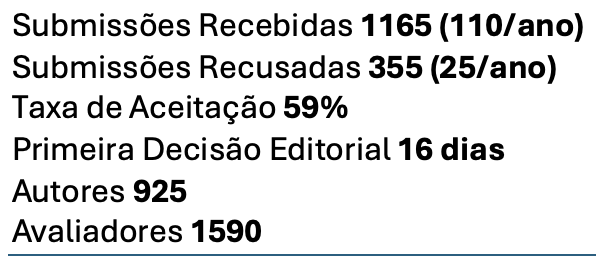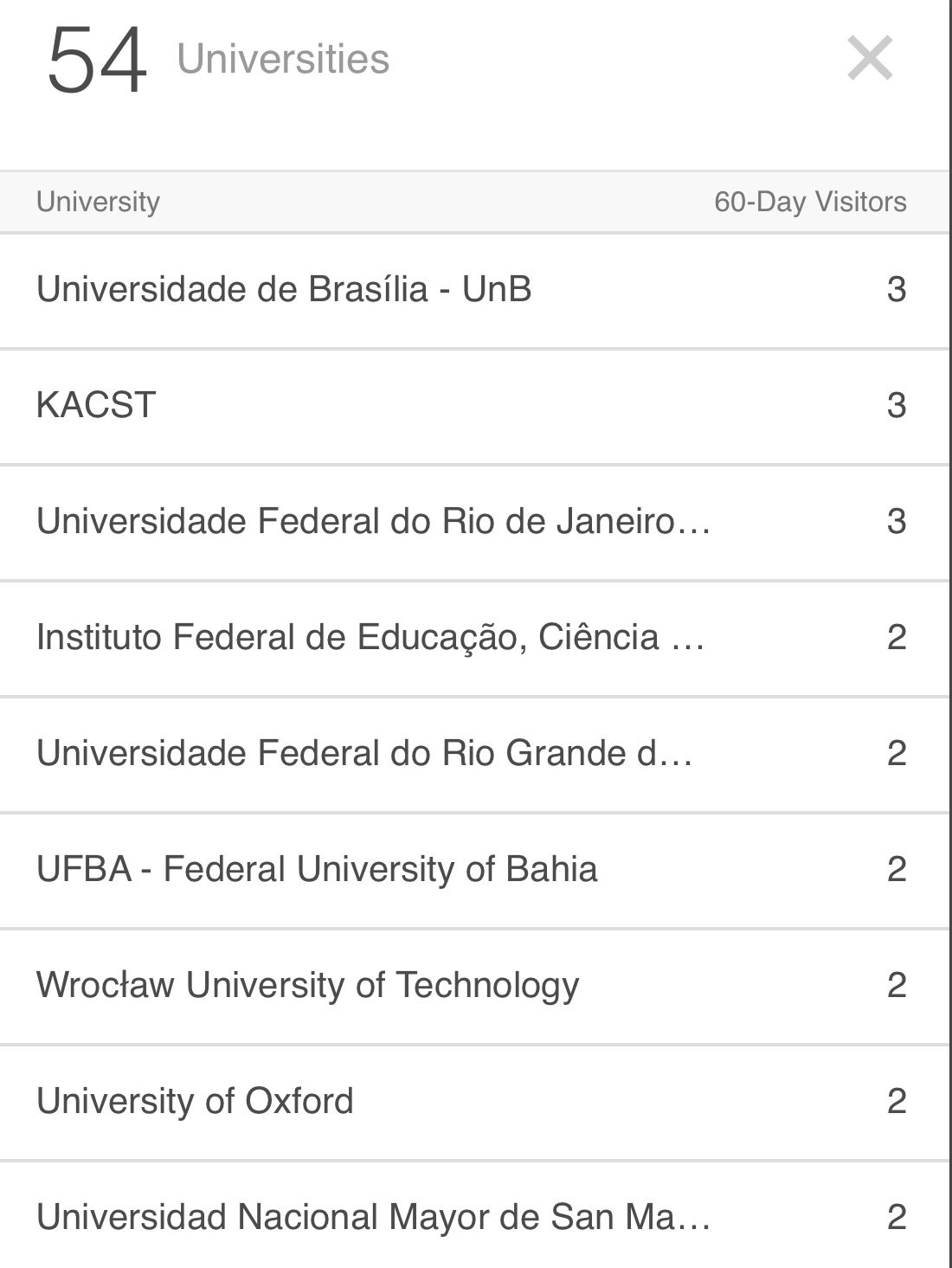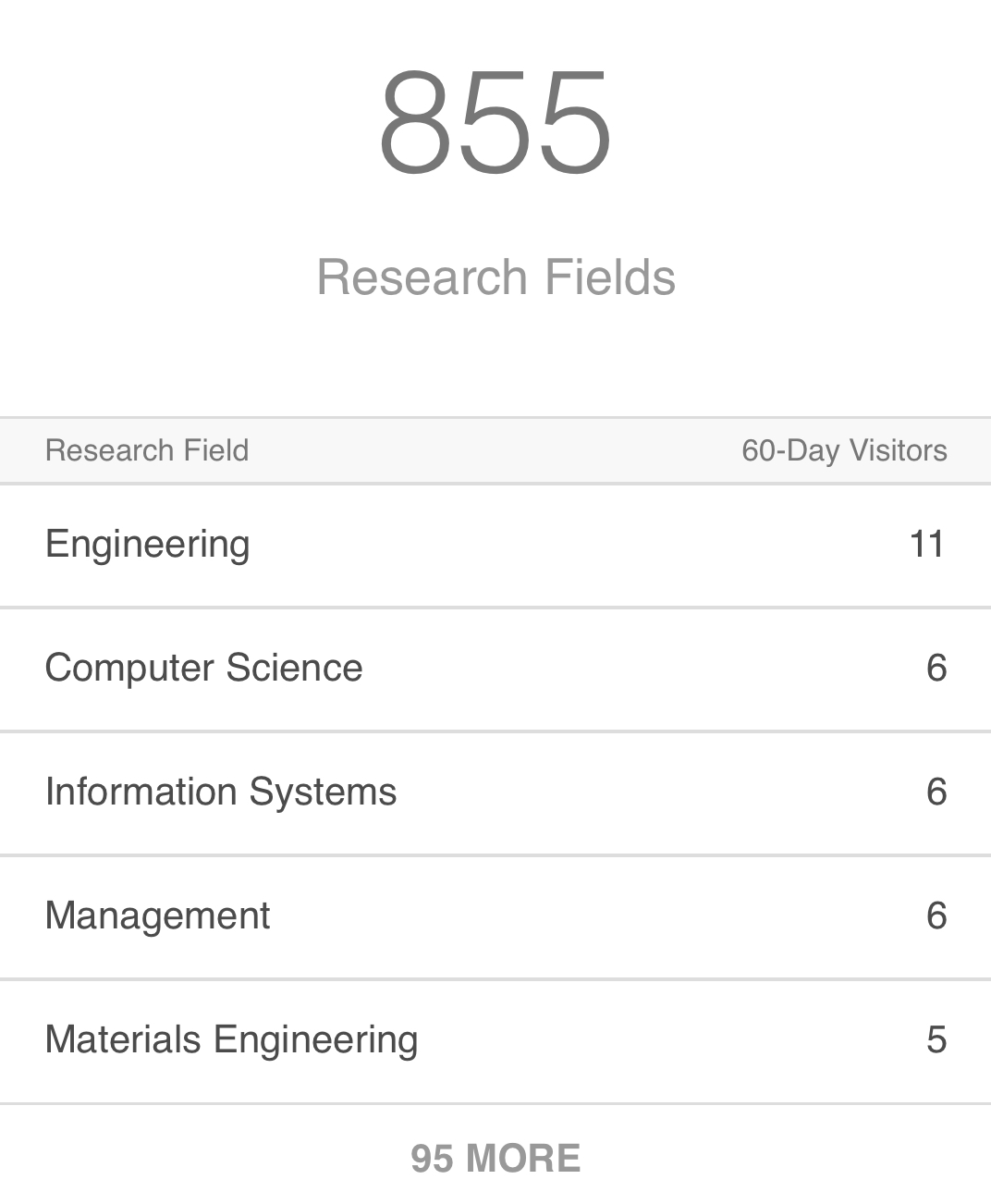Barreiras e vantagens do Lean Manufacturing a partir da avaliação do grau de maturidade para o desenvolvimento e performance organizacional
DOI:
https://doi.org/10.47456/bjpe.v8i3.38160Palavras-chave:
Barreiras, Lean Manufacturing, Produção Enxuta., Grau de MaturidadeResumo
O Lean Manufacturing (LM) é uma abordagem metodológica que utiliza ferramentas gerenciais e objetiva, principalmente, a modificação dos modelos produtivos tradicionais para novas abordagens que melhor gerenciem os processos a partir do atual sistema. Assim, a avaliação do grau de maturidade e aderência das ferramentas pouco é estudada, principalmente por conta da complexidade demonstrada. Esta pesquisa objetiva a realização de um mapeamento sistemático e bibliométrico sobre as barreiras e vantagens apresentadas no LM e a influência destas para a avaliação da maturidade das ferramentas empregadas, utilizando o espaço amostral entre 2011 e 2021 nas bases de dados Scielo, Scopus e Web of Science. Foram selecionados 27 artigos relevantes ao tema que compuseram o portfólio de artigos. De modo geral, os trabalhos apresentaram a sistematização de barreiras para o LM em quatro aspectos, o técnico, organização do trabalho, fatores humanos e o ambiente externo, tendo a fundamentação sócio técnica como fator decisório para a manutenção das práticas de melhoria organizacional propostas pelo LM a longo prazo, garantindo então a maturidade das ferramentas empregadas. Por fim, ainda que as barreiras existam em maior quantidade, as vantagens do LM conferem maior relevância ao tema estudado, permitindo a continuidade de pesquisas sobre o tema.
Downloads
Referências
Baskaran, S. M. & Lakshmanan, A. R. (2019). A framework for lean readiness evaluation using a hierarchical fuzzy system. South African Journal of Industrial Engineering, 30(1), 220-234. http://dx.doi.org/10.7166/30-1-1988
Bento, G. dos. S. & Tontini, G. (2019). Maturity of lean practices in Brazilian manufacturing companies, Total Quality Management & Business Excellence. https://doi.org/10.1080/14783363.2019.1665827
Bhasin, S. (2013). Impact of corporate culture on the adoption of the Lean principles. International Journal of Lean Six Sigma, 4(2), 118-140. https://doi.org/10.1108/20401461311319329
Bhasin, S. (2012). Prominent obstacles to lean. International Journal of Productivity and Performance Management, 61(4) 403-425. https://doi.org/10.1108/17410401211212661
Bortolotti, T., Boscari, S., & Danese, P. (2015). Successful lean implementation: organizational culture and soft lean practices. International Journal of Production Economics, 160, 182-201. https://doi.org/10.1016/j.ijpe.2014.10.013
Chueke, G. V. & Amatucci, M. (2015). O que é bibliometria? Uma introdução ao Fórum. Internext, 10(2), 1-5. https://doi.org/10.18568/1980-4865.1021-5
Coetzee, R., Dyk, L. V., & Merwe, K. R. V. D. (2018). Towards addressing respect for people during lean implementation. International Journal of Lean Six Sigma. 27(3), 79-91. https://doi.org/10.1108/IJLSS-07-2017-0081
Cunha, L. P., Angélico, M. G., & Medeiros Neta, O. M. (2018). Mapeamento Bibliométrico Da Produção Científica: Elaborando Conhecimento Sobre Pestalozzi. Revista Brasileira de Iniciação Científica, 5(4), 58-69. Recuperado de https://periodicos.itp.ifsp.edu.br/index.php/IC/article/view/1245
Dennis, P. (2008). Produção lean simplificada: um guia para entender o sistema de produção mais poderoso do mundo. Porto Alegre: IMAM.
Enoch, O. K. (2013). Lean six sigma methodologies and organizational profitability: A review of manufacturing SMEs in Nigeria. American Journal of industrial and Business Management, pp. 573. http://dx.doi.org/10.4236/ajibm.2013.36066
Ensslin, L., Ensslin, S. R., Lacerda, R. T. O., & Tasca, J. E. (2010) ProKnow-C, Knowledge development process-constructivist. Processo técnico com patente de registro pendente junto ao INPI. Brasil, 10(4), 2015. https://doi.org/10.1590/1413-81232018241.00112017
Galeazzo, A. (2019). Degree of leanness and lean maturity: exploring the effects on financial performance, Total Quality Management & Business Excellence. https://doi.org/10.1080/14783363.2019.1634469
Glaser-Segura, D. A., Peinado, J., & Graeml, A. R. (2011). Fatores influenciadores do sucesso da adoção da produção enxuta: uma análise da indústria de três países de economia emergente. Revista de Administração, 46(4), 423-436. https://doi.org/10.5700/rausp1021
Henao, R. & Sarache, W. (2019). Lean manufacturing and sustainable performance: trends and future challenges, 208, 99-116.
Herzog, N. V., & Tonchia, S. (2014). An Instrument for Measuring the Degree of Lean Implementation in Manufacturing. Journal of Mechanical Engineering, 60(12), 797-803. https://doi.org/10.5545/sv-jme.2014.1873
León, G. E., Marulanda, N., & González, H. H. (2017). Factores claves de éxito em la implementación de Lean manufacturing em algunas empresas com sede en Colombia. Tendencias, 18(1), 85-100. https://doi.org/10.22267/rtend.171801.66.
Lian, Y. H. & Van Landegrem, H. (2007). Analysing the effects of Lean manufacturing using a value stream mapping-based simulation generator. International Journal of Production Research, 45. https://doi.org/10.1080/00207540600791590
Maghsoodi, A., Abouhamzeh, G., Khalilzadeh, M., & Zavadskas, K. (2018). Ranking and selecting the best performance appraisal method using the MULTIMOORA approach integrated Shannon’s entropy. Frontiers of Business Research in China, 12(1), 2. https://doi.org/10.1186/s11782-017-0022-6
Marodin, G. A. & Saurin, T. A. (2015). Managing barriers to lean production implementation: context matters. International Journal of Production Research, 53(13), 3947-3962. https://doi.org/10.1080/00207543.2014.980454
Netland, T. H., Schloetzer, J. D., & Ferdows, K. (2015). Implementing corporate lean programs: the effect of management control practices. Journal of Operations Management, 36, 90-102. https://doi.org/10.1016/j.jom.2015.03.005
SAE – Society for Automotive Engineers. (1999a). SAE J4000: Identification and measurement of best practice in implementation of Lean operation. Warrendale, PA, Society for Automotive Engineers.
SAE – Society for Automotive Engineers. (1999b). SAE J4001: Identification and measurement of best practice in implementation of Lean operation. Warrendale, PA, Society for Automotive Engineers.
Salonitis, K. & Tsinopoulos, C. (2016). Drivers and Barriers of Lean Implementation in the Greek Manufacturing Sector. Procedia CIRP, pp. 189-194. https://doi.org/10.1016/j.procir.2016.11.033
Singh, B., Garg, S., & Sharma, S. (2010). Development of index for measuring leanness: study of an Indian auto component industry. Measuring Business Excellence, 14, 46-59. https://doi.org/10.1108/13683041011047858
Shang, G. & Pheng, L. S. (2014). Barriers to lean implementation in the construction industry in China. Journal of Technology Management in China, 9(2), 155-173. https://doi.org/10.1108/JTMC-12-2013-0043
Susilawati, A., Tan, J., Bell, D., & Sarwar, M. (2015). Fuzzy logic-based method to measure degree of lean activity in manufacturing industry. Journal of Manufacturing Systems, 34, 1-11. https://doi.org/10.1016/j.jmsy.2014.09.007
Tortorella, G. L., Vergara, L. L., Ferreira, E. P., & Fries, C. E. (2016). Lean manufacturing and socio-technical and ergonomics practices implementation. The International Journal of Advanced Manufacturing Technology, 89, 9-12.
Tortorella, G. L., Vergara, L. G. L., & Ferreira, E. P. (2017). Lean manufacturing implementation: an assessment method with regards to socio-technical and ergonomics practices adoption. The International Journal of Advanced Manufacturing Technology, 89, 3407–3418.
Vaz, C. R. & Selig, P. M. (2016). Maturity Assessment Model of Intellectual Capital for Manufacturing Organization. IEEE Latin America Transactions, 14(1). https://doi.org/10.1109/TLA.2016.7430081
Welo, T. & Ringen, G. (2017). Lean assessment and trabsformation strategies in product developmente: A longitudinal study. Proceedings of the 21st International Conference on Engineering Design (ICED 17), (2), 21-25. http://dx.doi.org/10.5151/cbgdp2017
Womack, J.P., Jones, D.T., & Roos, D. (1992). A máquina que mudou o mundo. Rio de Janeiro: Campus.
Zanon, L. G., Ulhoa, T. F., & Esposto, K. F. (2020). Performance measurement and lean maturity: congruence for improvement. Production Planning & Control. https://doi.org/10.1080/09537287.2020.1762136
Downloads
Publicado
Edição
Seção
Licença
Copyright (c) 2022 Elenilson Rivando dos Santos, Diewelly Maria Silva, Gláucia Regina de Oliveira Almeida (Autor)

Este trabalho está licenciado sob uma licença Creative Commons Attribution 4.0 International License.

Atribuição 4.0 internacional CC BY 4.0 Deed
Esta licença permite que outros remixem, adaptem e desenvolvam seu trabalho não comercialmente, contanto que eles creditem a você e licenciem suas novas criações sob os mesmos termos.



2.png)

























































